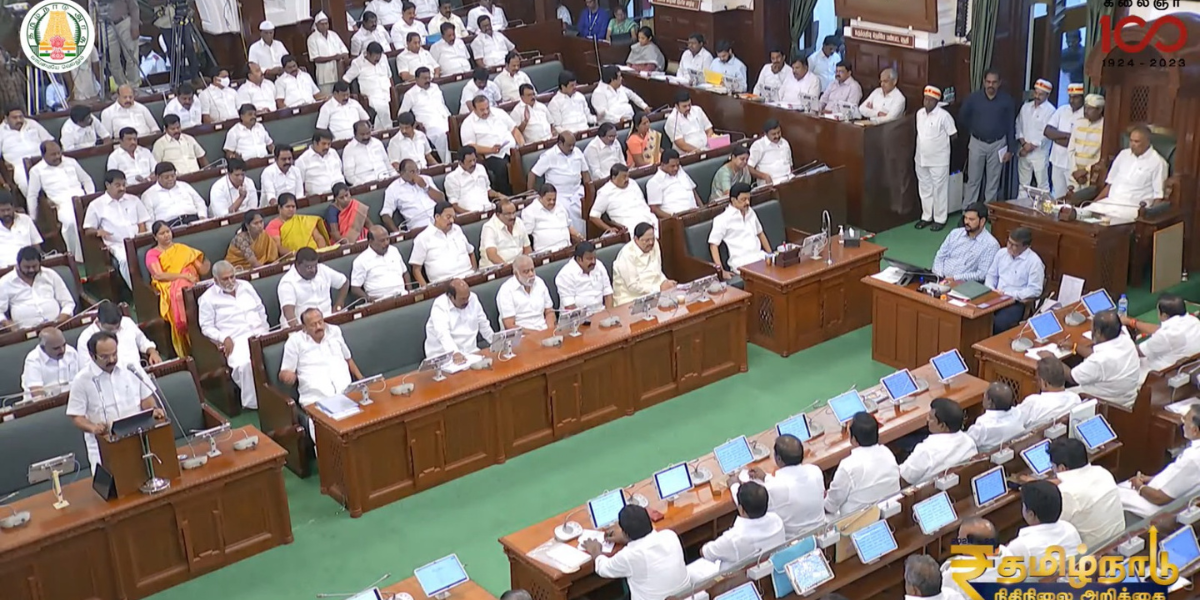To create a 'Hut-Free Tamil Nadu' by 2030, the government plans to construct 8 lakh concrete houses in rural areas.

TN Finance Minister Thangam Thennarasu presented the state Budget on 19 February. (Screengrab)
In the state Budget presented by Tamil Nadu Finance Minister Thangam Thennarasu on Monday, 19 February, the state government has focused on rural development, intending to address the persistent issue of hut-dwellings that continue to symbolise poverty in the state.
“Even in the 21st century, huts persist in rural areas as an enduring symbol of poverty. In the Indian society plagued with disparity, this transition to safe and permanent houses accords an opportunity for people to live with dignity,” the Finance Minister said.
Continuing the initiative started by Muthamizh Arignar Kalaignar in 1975, the “Kalaignar Veedu Vazhangum Thittam” scheme and subsequent efforts have laid the groundwork for a hut-free Tamil Nadu, Minister Thennarasu said.
To create a “Hut-Free Tamil Nadu” by 2030, the government plans to construct 8 lakh concrete houses in rural areas, with the first phase involving the construction of 1 lakh houses at a unit cost of ₹3.50 lakh each in the upcoming year.
Here are the other allocations for schemes/initiatives to empower rural development:
As Tamil Nadu emerges as a model for inclusive rural development, these budget allocations reflect a commitment to uplift the rural populace and create a sustainable future for the state.

Jul 26, 2024

Jul 26, 2024

Jul 25, 2024

Jul 21, 2024

Jul 21, 2024

Jul 21, 2024